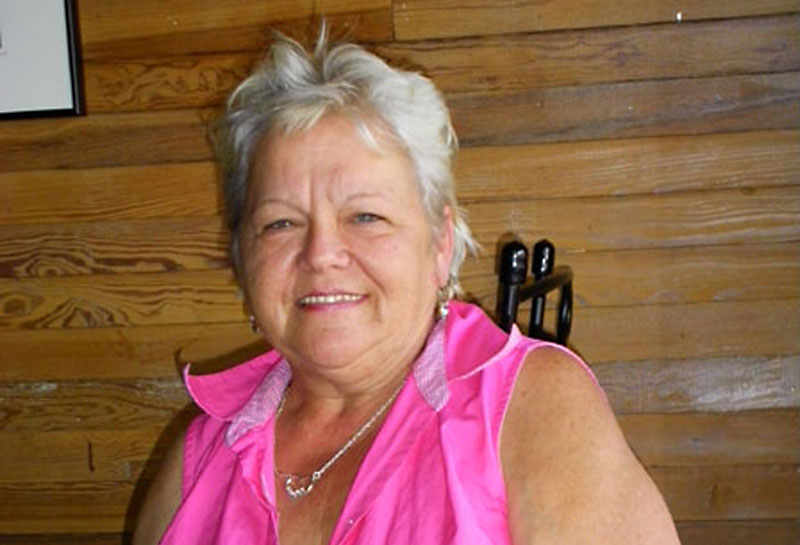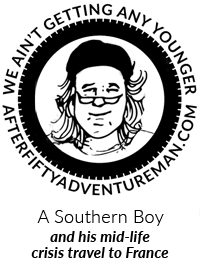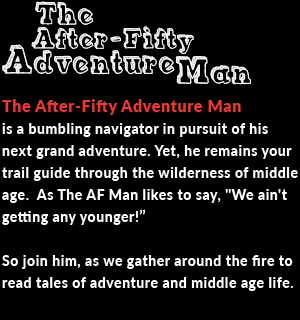June 1, 2010 –
Apalachicola, Florida
I stop at the local library on 6th street to catch up on emails and do a little research on the road that lies ahead. A quick glance at the wall clock shows 5:00 pm, and I realize time has slipped away. My friend Denise Roux hasn’t yet returned my calls or emails, and inquiries with the local Episcopal Church in search of a host for the evening have gone unanswered. I haven’t planned well regarding my evening accommodations, and a lonesome angst wells in my chest. Thus far on this journey, I have learned that few things tug at my sense of well-being more than the security of a place to bed down at the end of a long day.
Departing, I approach the librarian, querying her regarding local camping possibilities. Katy is her name, late fifties, with a solid stature that speaks of a fondness for fried shrimp and an array of Southern delicacies not necessarily known for their slimming attributes. But Katy is attractive in the way that experience and knowledge always adds to the larger picture of beauty, trumping the wide-eyed insecurity of lesser-accomplished women. She suggests I try the local Marina, which she states is a wonderfully bohemian enclave. “Surely, they would welcome a fellow traveler such as yourself,” she says.
I thank her and hand her my Slow Life on a Bike business card along with a small Fish Blessing, a prayer I wrote and illustrated, to thank her for her time and consideration. When she discovers my artist credentials via the bio on the back of the Blessing, Katy’s eyes twinkle and her left hand pushea back the lock of hair hanging anxiously over her upper cheek. With a smile borrowed from a younger version of herself, she kindly offers me a campsite in her yard and the promise of a tasty meal. Quickly, she scribbles a map to her home and a number to call if my plans with Denise don’t pan out.
As I pedal away in search of wooden shrimp boats to photograph, I wonder what secrets might reside in the heart of a small town librarian and what Miss Katy might be cooking up for dinner.
At Water Street, I find scores of idle fishing vessels tied to the wharf. The stillness along the docks and their unusual presence is but one more sign of an ominous tide of black oil moving silently towards the Florida panhandle. I am able to strike up a casual conversation with a fellow by the name of Junior, who just so happens to be bleeding profusely about the head and neck— and various other parts of his body. It seems Junior is the owner of the boat I just photographed, and he informs me he fell through some rotten planks in the dock only a brief time before my arrival. Blood runs freely from behind his new bandages and from a large cut in his left ear. Junior’s wounds do not seem to faze him in the least. I have the impression he is preoccupied with greater concerns than his bleeding appendages.
Sensitive to his plight, I ask him gently about the threat of Gulf oil on his town and his way of life. He removes his sunglasses, and I see tears resting in his sad eyes. Junior takes a deep drag on his cigarette, holds the smoke in for a long, contemplative moment, and, after his exhale, addresses me calmly. “It’s fixin to put me out of business for good,” is his steady reply. Then he makes a grand, sweeping gesture with his cigarette-laden hand to let me know his declaration is not meant just for himself, but encompasses all fishermen who share a similar fate. There is little in the way of a reply that will provide Junior any solace, but I extend condolences anyway, offering a firm hand and wishing him the very best in the face of such impending calamity.
At that moment, Denise calls, breaking the awkward silence between Junior and me. I bid Junior good luck and point the weary Surly westward across the cobblestones of Main Street and towards my friend’s home and the certainty of a soft bed and a warm shower. As I pedal along, the humid breeze of an almost-summer evening clings tightly around me. The air suddenly feels claustrophobic, as if I have been directed into a narrow corridor from which I can find no reasonable escape. In cyclist terms, I just scored a tri-fecta, having connected with an old friend and found a welcoming place to land, complete with the promise of a hot meal—all in the same evening! By rights, I should feel elated. Instead, an emptiness surround me as the last vestiges of sunlight leak through a shadowy stand of leafless trees.
Just then, the Surly careens into a pothole, and I just avoid a major tumble. But it’s enough to shake loose my feelings of dread, and I immediately seize upon my dilemma. “Hugh,” I mutter, “you love taking the predictable path. Here you are, masquerading as the intrepid adventurer, and when faced with the possibility of a new route you take the road most travelled—not the least.”
I am speaking, of course, about my decision to pass on Katy’s offer for tent space and dinner and opt instead for the company of my old friend Denise. What I realize in this moment is that our lives are all about the choices we make, and more poignantly about the choices we don’t. The angst and melancholy I feel follows me westward, under a canopy of live oak trees and across town to Denise’s home. I am simply disappointed in myself for turning away from a new doorway which opened. In a larger sense, I think, that our decision-making is so programmed that we automatically opt for the known quotient. Maybe that’s just human nature. I know the evening with Denise will be great, but it will also be comfortable and safe. And so, for Day 20, the score stands: Adventurer 0, Comfort Boy 1.
When I arrive at Denise’s home—a flat-roofed, blue-green, wood-sided structure straight out of the 1960s, which rests amongst a wooded canopy of live oak trees and long leaf pine, on a small neighborhood lot just a mile or so from the center of Apalachicola—Denise, like so many others on this trip, extends every kindness. Her boyfriend, Mark, whom I met only once, years before, is simply terrific. He brings home mounds of yummy Chinese food and a case of cherry Gatorade for my ride. He seems especially concerned for my personal safety, and after a few moments of conversation, he dashes off in a frenzy of activity. I hear him in the adjoining room rooting around in a closet, muttering, “Where the hell is it?” In a few moments, he shouts, “Got it!” then reappears waving a prized can of pepper spray. “A necessity, for would be attackers,” he says, and hands over the aerosol can as carefully as if it were a loaded gun.
* * *
I wake early this morning, on Denise’s overstuffed couch. The pre-dawn light casts shadows across the living room, and from my reclined position, I strain for a view through the large plate-glass window. A fig tree appears out of the darkness, and then the white blossoms of a gardenia bush slowly emerge, as if an invisible artist is brushing color onto the remnants of the night’s lost world. Spanish moss, which hangs from a sentry oak in the backyard, trails its wispy fingers low to the ground, framing my view, as if it were an antique post card, reading, Welcome to Dixie, Ya’ll.
The whole scene conjures the soft fecundity of Southern landscapes, and I am once again struck by Dixie’s power to lure you with her simple beauty and hypnotically sweet scent. Before you know, it the Siren of the South has you in her clutches—alabaster fingers caressing and evoking a longing you never even knew existed, her lithesome legs wrapping ever more tightly around your equatorial center, drawing you deep inside to quiet ecstasy. Come morning, you are a bona fide son of the South—in love with her forever.
As with all things tender, however, these moments are fleeting. I say a silent prayer of thanks for such a soft start to my day, making sure to address those spirits who watch over me on this journey. I am grateful. But I will always wonder how things might have been had I stayed with the librarian from Apalachicola.
There’s a stir in the house, as my hosts arise. When my hosts Denise and Mark leave for work, I pack up my gear and get ready to head back to town for breakfast. Just then, Denise’s neighbor comes out and suggests a place along the waterfront. His suggestion sounds great, but, as I swing the Surly, trailer in tow, down Main Street, I spy The Magnolia Café. Through the window, I see two women drinking coffee, and something tells me this is the place for breakfast. Earlier, while I made my morning preparations, a voice whispered in my ear, Apalachicola has a story to tell. Do not depart until you have heard it. Remembering yesterday’s fork in the road, I decide not to make the same mistake twice. Abandoning my plan to make for the waterfront, I pull up to the café, make my way to a table near the two women , and introduce myself. Phyllis Blan sits closest to me, and we strike up an easy conversation.
Phyllis, a woman in her mid-sixties, who radiates a grounded field of energy, has a full head of gray hair that seems to reach an equilibrium around her friendly face without help of hair spray or other chemical agent. She tells me that her family name, “Blan,” is French, and they’ve resided in Apalachicola for six generations. I share with Phyllis that I am married to a French woman. She likes that. I sense a shift in her gaze, as if she has just decided she likes me, too. Soon, I discover that the Magnolia Café was the original town pharmacy, complete with a soda fountain, which she visited when she was a girl. The pharmacy caught fire, and the owner, whom Phyllis knew, has recently retired.
It seems Phyllis’s grandfather was responsible for building many of the local homes. He owned a lumber yard and construction business. He was also responsible for flying Santa Claus to town each Christmas in his small private plane, then whisking him through the streets on a fire engine with sirens blaring. When we get on to talking about food and local recipes, Phyllis tells me about her grandmother, who used to cook for the inmates down at the jailhouse. It seems that every Friday night the sheriff would jail the same man. He was the town drunk, Phyllis says. On Saturday morning, her grandmother would make the man a wonderful breakfast, then, once he felt up to it, he would let himself out of the cell and go home—the sheriff never bothered to lock him in.
Phyllis regales me for over an hour with story after story about Apalachicola, generally in chronological order. We both knew she will soon arrive at the present moment. When she does, her eyes fill with tears, and she confesses that she simply doesn’t know what will become of her beautiful town. They have all worked so very hard, she tells me, to keep the fishing industry alive. It is a passion that lives in the hearts of all the local citizens. They want to keep that way of life alive. “It is who we are,” she says. “Now what will become of us?”
Renee, the waitress, appears with more coffee and suggests that the restaurant might become a soup kitchen. “People will have to be fed,” she announces. I must appear concerned, because Phyllis implores me not to worry for Renee, as if Renee and I have somehow been longtime friends. “Renee is retired,” Phyllis says. She will always remain in Apalachicola. She will be fine. “But without fishing, the young people must leave, and the tourists will not want to come here. Already, the cancellations are happening,” she says. “Who wants to spend their hard-earned money on a vacation when the bay and the white sand beaches will be covered in oil?”
Phyllis’s eyes become sad, but just when I think we might need to ask for more napkins, she suddenly brightens. “Apalachicola,” she says, “raises happy people, and whatever fate befalls us, there will be a recovery. We will survive. We will be OK!” She makes her declaration with such ferocity that I want to believe her. She reminds me of a long line of steel magnolias, who, in the face of tragedy, suddenly find an obscure bright spot upon which to focus their attentions. Completely Southern, Phyllis is a survivor.
I pay Renee for my waffle, eggs, and sausage. The meal was perfect. And the whispering voice was right: Apalachicola has a story to tell, and Phyllis was the person to tell it. She promises to send me photos of the old fire station, and of other people and places she feels I must know about, like her friend Donna Austin, who died recently at 101, the oldest woman in Apalachicola. She grasps my hand very firmly and tells me, “There are not many places where you can see both the river and the bay, but early in the mornings, when the fog is lifting, I sit under the bridge with my cup of coffee and watch the sun bring its light on these two bodies of water.”
* * *
As I ride through the long expanse of the Apalachicola forest, I think about Phyllis, sitting beneath that bridge, watching the sun bring its light, and anchoring her faith and hope for an entire town. She is not alone. I believe there are
souls like Phyllis in other towns, in other cities, in other circumstances, who, by their faith in goodness and some mystical vision of the future, are able to focus the love of God in times of trouble. As I pedal, I imagine these ordinary mystics gathering up and down the coast of Florida’s panhandle, preparing to restore beauty and integrity to their communities long after the oil has arrived.












Leave a reply